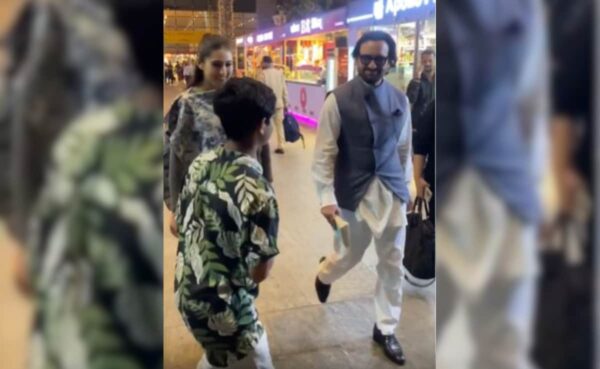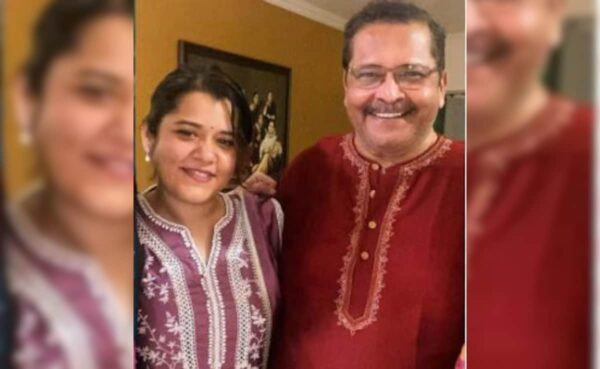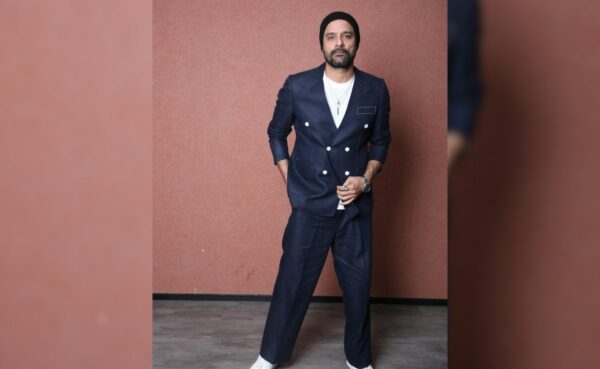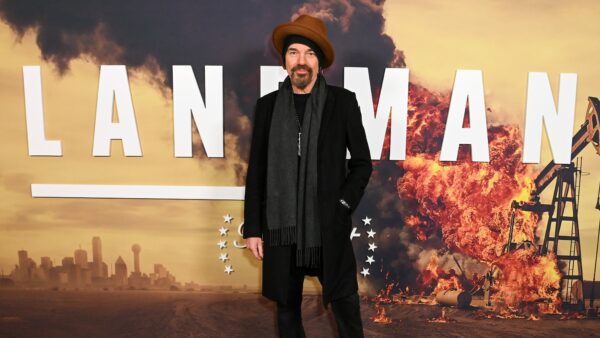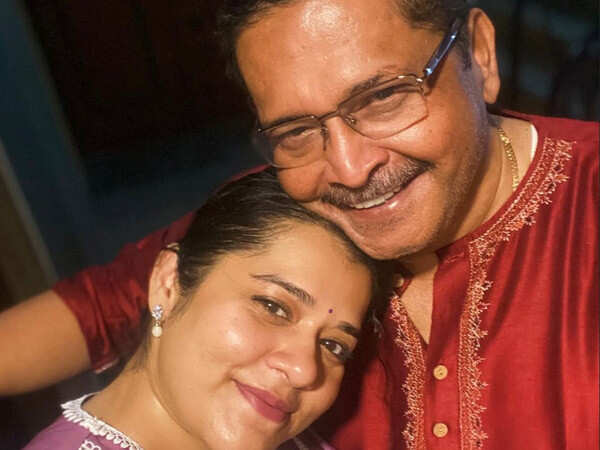Pushpa: The Rule – Part 2 Review: The Film Is Crushed Under The Weight Of Its Own Vaulting Ambition
5 min read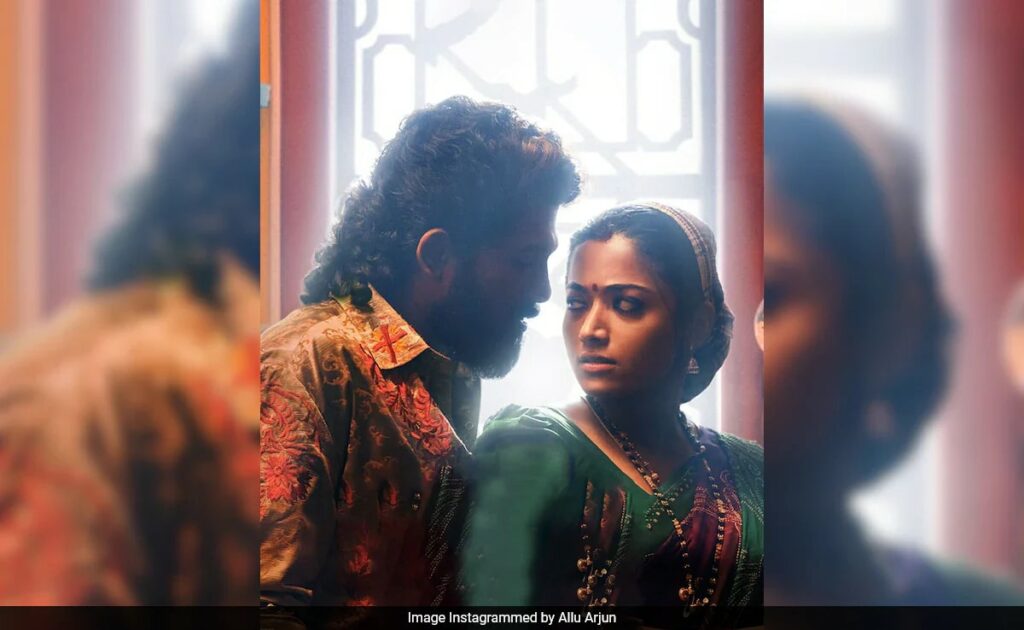
Pushpa: The Rule – Part 2 Review: Allu Arjun is strikingly consistent
It is perfectly understandable why writer-director B. Sukumar, having tasted humongous commercial success with Pushpa: The Rise, is in no mood to dilute the formula. He loses no opportunity in the sequel to push the buttons that fetched him and lead actor Allu Arjun rich dividends.
As it goes all out in quest of more of the same, Pushpa: The Rule – Part 2 is oftentimes in danger of being reduced to a turgid mess. While it manages to avert that eventuality, it does stray into stretches that are unconscionably contrived, overstretched and mounted simply to reinforce the protagonist’s aura of invincibility, logic and gravity be damned.
In this maximalist universe, there is nothing that is treated as implausible. Pushpa Part 2 goes hell for leather but large parts of the film are crushed under the weight of its own vaulting ambition.
Sukumar’s screenplay, AA’s crowd-pleasing mannerisms and Fahadh Faasil’s extended presence (the widely admired Malayalam film actor embodies both levity and blustery bravado) unabashedly aimed at heightening the effect that the precursor had on audiences across the nation.
The effort yields mixed results. A couple of the film’s set pieces – the principal ones are protracted and shrill affairs – work reasonably well. The rest do not.
Cinematographer Miroslaw Kuba Brozek, whose exceptional skills shone through in the first film and contributed significantly to its impressive visual sweep, brings the same level of craftsmanship to bear upon the follow-up. That Pushpa Part 2 has no technical blemishes is par for the course, but its plot is disappointingly uneven.
The first couple of hours of the 200-minute movie lurches from one flashpoint to another. Each brings out the import and scope of Pushpa’s jhukega nahi rhetoric. His battle with IPS officer Bhanwar Singh Shekhawat (Faasil, who, unlike in Pushpa: The Rise, makes an appearance right at the outset here) hurtles towards what appears to be a culmination until the film throws up a surprise in its dying minutes.
Pushpa (Allu Arjun) is now a doting husband to Srivalli (Rashmika Mandanna) but he is anything but domesticated. His empire of crime is now wider than ever. He spreads his wings beyond the shores of India and swings a mammoth red sander deal with a Dubai-based buyer Hamid (Saurabh Sachdeva in a cameo).
Pushpa runs his gang with the help of his friend and trusted lieutenant Keshav (Jagadeesh Prathap Bandari) and is well served by a battalion of smugglers who never let the thought of betrayal cross their minds. However, as one would expect in movies like this one, Pushpa always fights the bad guys single-handedly.
He is an axe-wielding criminal whose writ runs unchallenged in the forest that he lord over. His adversary is a corrupt, caricaturised cop. Pushpa is so secure in his saddle that he does no running at all. But the police officer charged with tearing down his illegal red sander business is constantly chasing shadows.
Pushpa’s grip on the smuggling syndicate is undisputed. He deals summarily with the threats that the police pose to his gang, leaving Shekhawat, the district’s SP, fuming and at a loose end. The frustrated cop’s desperate measures only aggravate matters between him and Pushpa.
Pushpa has to contend with another an equally persistent foe, Daksha (Anasuya Bharadwaj) and her smuggler-husband Mangalam Shrinu (Sunil). The woman exploits her proximity to SP Shekhawat to fish in troubled waters.
For the indignity that Pushpa had subjected Shekhawat to in the past, he is forced to apologise to the man in uniform at a raucous party organised by a politician to broker a truce. But since he isn’t the type to take a blow to his ego lying down, Pushpa settles scores before the party is over. The two men are back at each other’s throat.
Earlier in the film, a thwarted photo op gets Pushpa’s goat big time. He resolves to make the chief minister of the state pay a price for the effrontery. He throws his weight behind MLA Sidappa (Rao Ramesh). The repercussions of that political act take a while to manifest themselves, but there is no dearth of action in Pushpa’s life in the interim, what with the police officer running around in circles in the hope of catching the smugglers red-handed.
In the last one-third of the film, the plot veers off the main Pushpa-Shekhawat confrontation track – it is allowed to literally go up in flames – and settles on a personal angle that was alluded to several times in the first film – Pushpa’s tense relationship with his half-brother Molleti Mohan Raj (Ajay), who revels in humiliating the hero for being an illegitimate son.
Mohan’s daughter Kaveri (Pavani Karanam) becomes a pawn in the hands of an adversary who surfaces late in the film and sets off a long climactic action sequence in which Pushpa, with his hands and legs tied, proves why he isn’t just any odd fire anymore, but a veritable full-blown wildfire.
Pushpa: The Rule – Part 2 kicks off with a nightmare that ends with the titular character plunging into a sea after being shot in the shoulder. He wakes up with a start and a suppressed shriek. His wife is alarmed although she is acutely aware that there is nothing in the world that can cow down Pushpa.
The scene is followed by moments of awkward intimacy between AA and Rashmika – there are several more in the course of the film – that are clearly meant to be a response to criticism that Pushpa’s exploits glorify violence and offensive masculinity (more on this aspect of the film later).
The rest of Pushpa Part 2 has the actor and the character in their elements all right. Allu Arjun is strikingly consistent. This is despite the fact that Pushpa’s slanted shoulder does an inexplicable vanishing act after a point never to return although his personality-defining beard caresses are still very much part of the deal. However, the 200-minute movie turns into a bit of an exhausting ordeal when it gropes in the dark for genuine inspiration.
The women in Pushpa’s life – his mother Parvathi (Kalpalatha) and his wife – are the only people who can bring him to his knees. Srivalli does just that after a tiff that allows the film to weave in a longish scene to assert Pushpa’s non-sexist stance towards marital and other relationships.
In fact, the intrepid man goes androgynous with a vengeance in a song and dance sequence – a frenzied incantation performed by Pushpa to invoke the blessings of Goddess Kali. He wears a sari and his fearsomely piercing eyes are accentuated by kohl generously applied above his cheeks.
The full force of the fury of the fiery female divine is felt by a bunch of ruffians (they have glowing red, devilish horns on their heads) who barge into the religious ceremony asking for trouble. Pushpa gives it to them, with his avatar of the Goddess of Destruction unleashing a rampage.
The self-same rampage is repeated in the climax. Pushpa once again dons the guise of Kali. After the hurly-burly is done and a wedding is underway to indicate an end to hostilities, Pushpa Part 2 points to a Part 3. The final chapter of the trilogy will be titled Pushpa: The Rampage. As if there hasn’t been enough already.

